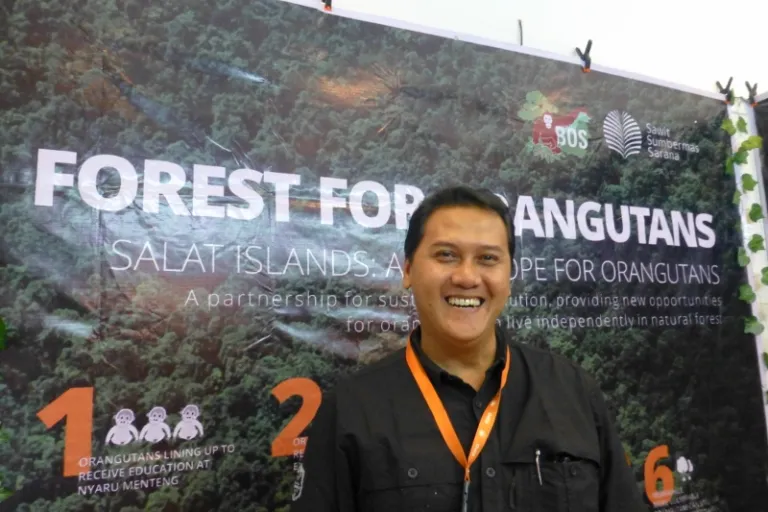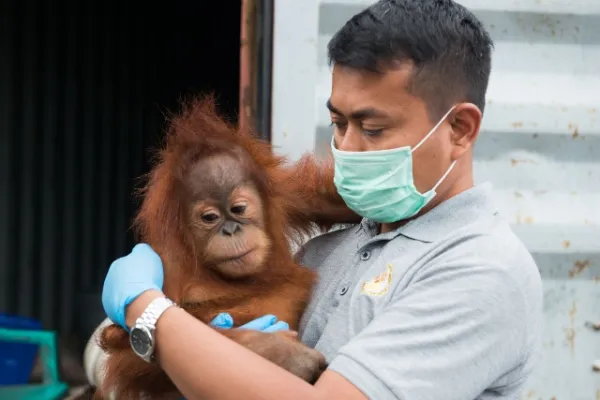NGOs and palm oil companies collaborate to protect orangutans
The issue of palm oil sustainability raises the hackles of those who say there is no such thing, and demand a boycott of palm oil, but most of those working on the ground in producer countries say a boycott would be pointless and commitments to sustainability are the way forward.
The executive director of the UK-based Orangutan Land Trust, Michelle Desilets, said: “More and more we are seeing conservation organisations, and, in particular, orangutan NGOs, working with the growers and the wider supply chain to drive change on the ground.
“This doesn’t necessarily involve an exchange of money but rather a change in practices to not only protect orangutans in the landscape but to carry out concrete conservation actions that improve the situation for wildlife.”
Orangutan NGO BOSF and palm oil company SSMS collaborate
The Borneo Orangutan Survival Foundation (BOSF) and the palm oil company PT. Sawit Sumbermas Sarana (SSMS) have been collaborating on a landmark project in Indonesia that started in 2015: the Salat Islands Cluster.

Henky Satrio Wibowo (SSMS)
Henky Satrio Wibowo, who is head of the corporate sustainability division at SSMS, says the Salat Islands programme is part of the company’s commitment to the Roundtable on Sustainable Palm Oil (RSPO) and SSMS is also trying to remove the stigma relating to palm oil, the belief that is it is always negative for orangutans.
“We want to show to the world that palm oil and orangutan NGOs can collaborate in order to preserve the orangutan,” Wibowo said. “We hope that other palm oil companies will follow our example.”
For Wibowo, sustainability is about collaboration – collaboration between the palm companies, NGOs involved in orangutan rescue and protection, local communities, local governments, and the national government.
The CEO of the BOSF, Jamartin Sihite, says the Salat Islands are not a solution to deforestation in Indonesia, but, for the many orangutans in cages at BOSF’s Nyaru Menteng centre, they are a huge step that is allowing the primates to return to the forest as soon as possible.
Avoiding conflict
Chairman of the BOSF board of trustees, Bungaran Saragih, says that if we wish to achieve sustainability we need to learn to avoid conflict.

Panut Hadisiswoyo of the Medan-based Orangutan Information Centre (OIC) in Indonesia.
“Conflict is very costly,” he said. “That’s why we have to learn to cooperate; to learn to follow the paradigm of inclusivity: ‘You are not my enemy. You are my friend.’”
Landscape-based approach
Chairman and founder of the Orangutan Information Centre, Panut Hadisiswoyo, says sustainable planning needs to be landscape based.
“We need to be looking at the landscape as a whole, not just the administration boundaries,” Hadisiswoyo said. He added:
“Pressuring the industry to produce palm oil responsibly will regulate the way palm oil is produced. Boycotting will not do this. The industry will still sell to other consumers who do not care about sustainability.”